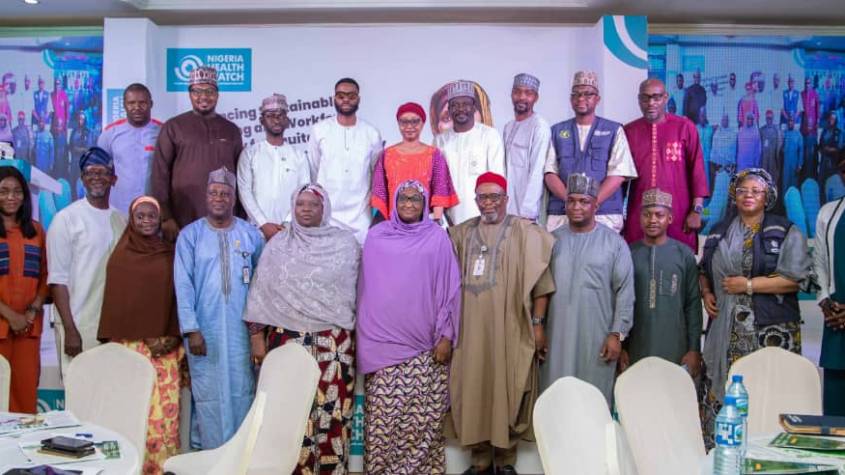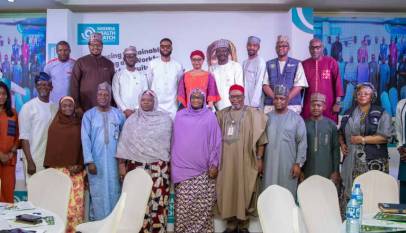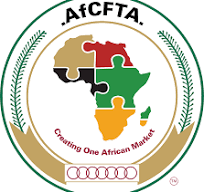Nigeria Health Watch’s Kaduna Policy Dialogue Promotes Sustainable PHC Financing
Nigeria Health Watch’s policy dialogue, themed “Advancing Sustainable Financing and Workforce Capacity for Equitable Primary Health Care [PHC] Delivery and Improved Health Outcomes in Kaduna State,” sought to tackle persistent challenges in the state’s PHC system.
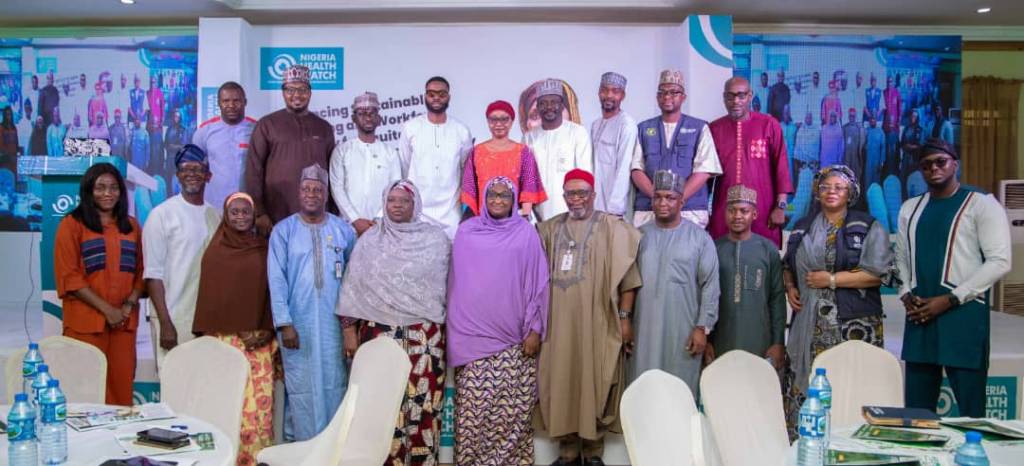
In 2011, the Federal Government introduced the Primary Health Care Under One Roof (PHCUOR) policy to strengthen PHC delivery by streamlining governance and reducing service fragmentation.
The policy aimed to unify PHC under a single authority at the state level to address longstanding issues such as underfunding, workforce shortages, weak referral pathways, and ineffective monitoring systems. Despite this strategic policy shift over a decade ago, significant gaps remain in Nigeria’s PHC system, such as inadequate financing and poor service delivery persist.
Among Nigeria’s 30,000 PHC facilities, only 20% are fully operational. Most PHCs grapple with critical issues like insufficient staffing, poor infrastructure, limited medical supplies, and inadequate access to essential medicines, particularly in rural and underserved areas, exacerbating health disparities across the country.
Against this backdrop, Kaduna State has demonstrated a strong commitment to healthcare by consistently meeting the 15% health budget allocation benchmark over the past three years. However, the real challenge lies in allocation and in mobilising, disbursing, and effectively utilising these funds to enhance service delivery.
Despite progress under Nigeria’s Health Sector Investment Renewal Plan (2023–2026), significant gaps remain, particularly in the equitable distribution and availability of skilled health workers.
In line with efforts to address ongoing challenges around access to PHC, Nigeria Health Watch convened a one-day policy dialogue in Kaduna under the theme: “Advancing Sustainable Financing and Workforce Capacity for Equitable Primary Health Care Delivery and Improved Health Outcomes.’
The event convened key stakeholders who explored practical solutions to persistent funding gaps and workforce shortages in the state’s PHC system. They include representatives from the Federal Ministry of Health, Kaduna State Primary Healthcare Management Board, healthcare professionals, civil society organisations, and community leaders.
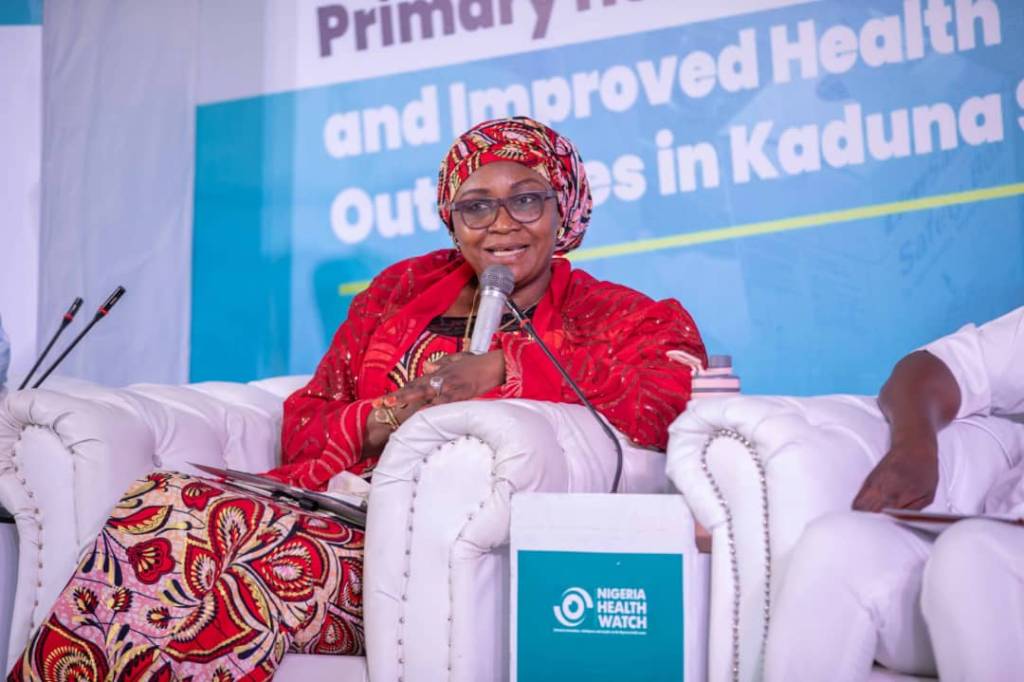
“Sustainability not Guaranteed by Funding Alone; Requires Transparent Disbursement” – Dr Sadiq
While delivering the keynote address at the policy dialogue, Dr Aishatu Abubakar Sadiq, Permanent Secretary at the Kaduna State Ministry of Health, said achieving universal health coverage in Kaduna demands intentional investments at the primary healthcare level, particularly in light of the state’s complex demographics.
“With a population of over 10.6 million, a high youth proportion, and a multidimensional poverty index of 88% rising to 89% among females, Kaduna State faces unique healthcare delivery challenges. Equity in healthcare delivery begins with transparent and strategic investments in PHC,” said.
Dr Sadiq noted that while the state had made appreciable progress in leveraging the Basic Health Care Provision Fund (BHCPF) to channel resources directly to facilities, sustainable healthcare financing demands more than just funding. “Sustainability is not guaranteed by funding alone. It requires transparent disbursement and tracking mechanisms, community participation in budget planning, and a commitment to result-oriented spending.”
To this end, Dr. Sadiq further stated that the state is exploring innovative financing models, including state-level health trust funds, performance-based financing pilots, and community-based health insurance schemes, to reduce out-of-pocket spending and improve equity. “The cost of healthcare has become prohibitive for most of our population due to rising living costs. We must cushion this burden, especially for the poor and vulnerable,” she added.
Dr Sadiq also expressed the urgent need to address Nigeria’s growing health workforce crisis, exacerbated by attrition, internal migration to urban and tertiary facilities, and the ongoing ‘Japa syndrome, pointing to workforce shortages and rural-urban distribution gaps as key challenges Kaduna is addressing. “No PHC system can be equitable if health workers are unavailable, overburdened, or unsupported,” she stressed
However, she revealed that Kaduna State has developed a Human Resources for Health (HRH) policy with a costed implementation plan and executive backing. The HRH policy she explained also provides for rural hardship allowances and career progression incentives to retain talent where it is most needed.
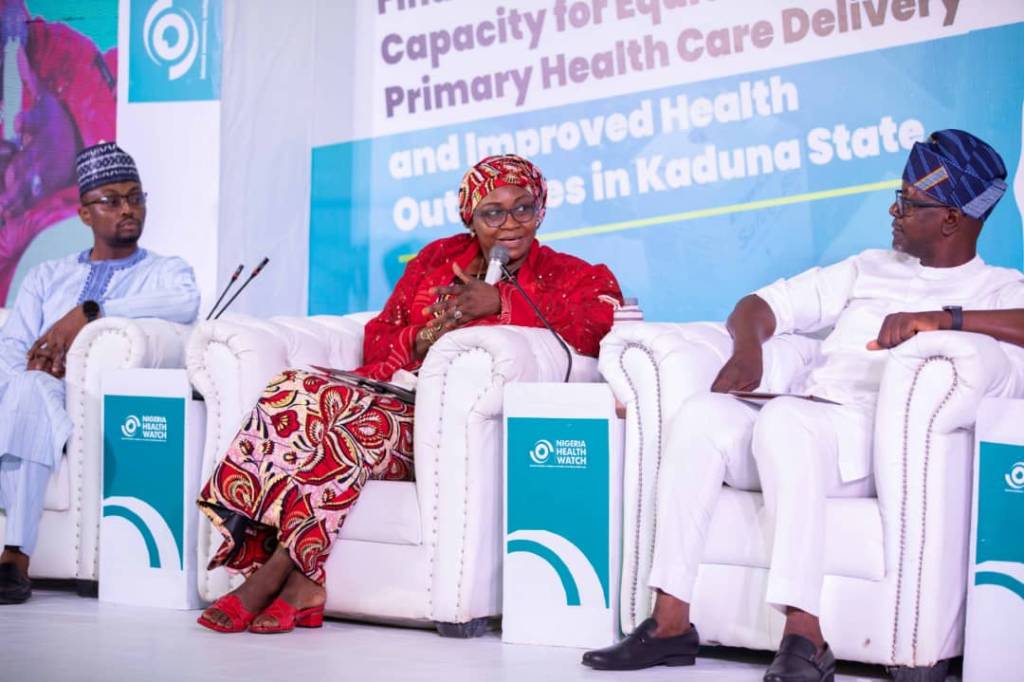
Unpacking the Challenges of Sustainable PHC Financing in Kaduna State
The first panel of the dialogue explored the multilayered challenges of health financing in Kaduna, underlining challenges around planning, fund disbursement, and service delivery. One of the panelists, Malam Abubakar Hassan, Director-General of the Kaduna State Contributory Health Management Authority (KADCHMA), underlined the role of strategic planning and stakeholder alignment in ensuring financing translates into tangible outcomes.
“Realistic planning is a major constraint at times. When we plan outside the actual context of our health system needs, we often find ourselves trying to address other contending priorities. This misalignment makes it difficult for such plans to secure timely approvals. For financing to work effectively, our plans must be rooted in the realities on the ground and aligned with broader state priorities,” he said.
Hassan underscored the need for technical support, especially in planning and budgeting, to ensure effective fund utilization. According to him, even when resources are available, gaps in spending capacity and accountability at the service delivery level undermine impact, often delaying critical interventions.
“Understanding the roles we each play within the financing value chain, from policy to implementation, is critical. We must recognize our responsibilities and remain accountable, otherwise, funds may not reach the facilities, and the people we intend to serve may be left out. Your ability to report on time and present information in the correct format is essential for timely appraisals and access to needed financing,” he emphasized.
Dr. Dutse Musa, Director of Health Planning, Research and Statistics at the Kaduna State Primary Health Care Board, further explained the procedural bottlenecks affecting funds flow to PHC facilities, highlighting how a disconnect between budget approvals and actual cash disbursements often causes delays in executing planned activities at the facility level.
“Sometimes the officer doesn’t apply properly, or the request gets stuck in the agency before reaching planning, budget, or finance. And even when approvals come, they don’t always mean cash backing. There can be disconnects at every stage, worsened by liquidity and limited funds. The processes are layered, and disruptions can occur at multiple points,” Dr. Musa explained.
However, he acknowledged improvements in Kaduna’s internally generated revenue and expressed hope that better liquidity would ease some of the funding delays, stressing the need for stronger institutional coordination.
In his intervention, Habib Ali Lawal, Permanent Secretary at the Kaduna State Ministry of Finance, said Kaduna State has now adopted a more streamlined and transparent budgeting model under the current administration, admitting that funding needs will always exceed availability, urging sector actors to collaborate more effectively.
“Approvals now typically come with cash-backing. We also issue advance payments for major projects to ensure timely execution. Nevertheless, let’s identify the real issues and bring them to the attention of His Excellency. The state is committed to improving healthcare financing,” he stated.
Coordinating Partnerships and Building Workforce for Effective PHC Delivery
The second panel at the dialogue brought attention to one of the most critical determinants of effective primary health care delivery: availability, distribution, and retention of frontline health workers. In this direction, the discussion delved into Kaduna’s efforts to build a resilient health workforce.
Mr. Maxwell Sanda, Director in charge of Human Resources for Health (HRH) at the Kaduna State Primary Health Care Development Board, emphasized the importance of coordination among development partners in the state’s health sector. He pointed out that overlapping programs and fragmented investments often result in duplication of efforts and missed opportunities.
“We need to align our interventions to state priorities. Multiple partners are working across the same areas, but coordination has not always been strong. That is why we are encouraging platforms that ensure synergy and optimize resource use. Coordination is not just about sitting at the table, it’s about implementing what’s agreed upon and measuring impact,” Sanda said.
Dr. Anthony Shamang, a PHC Consultant, said, beyond financing, Kaduna must prioritize staff recruitment and retention to bridge its HRH gap. “You can have the best equipment and infrastructure, but if there are no health workers on the ground, communities will not benefit. We need to address rural-urban workforce distribution, provide incentives, and invest in continuous professional development,” he stated.
He acknowledged the state’s efforts in developing a costed Human Resources for Health (HRH) Policy and urged for more implementation momentum. “We must move from policy to action; recruit midwives, train agents, and provide rural hardship allowances to keep our health workers where they’re needed most,” he said.
While wrapping up the panel discussion, Dr. Kabiru Atta, Country Representative at EngenderHealth, said accountability mechanisms must be embedded at every level of service delivery, noting that open budgeting and citizen engagement can build public trust in government health interventions.
“Our approach has been to institutionalize transparency. We are one of the few states that conduct open budget reviews with civil society, media, and community representatives. We explain how funds were allocated and what was achieved. That alone builds confidence and strengthens citizen oversight and drives accountability,” Dr Atta said
The Kaduna policy dialogue reaffirmed that sustainable primary healthcare hinges not just on funding but on transparency, planning, and a resilient workforce. Stakeholders pledged collective action to turn policies into impact, ensuring no community is left behind.

